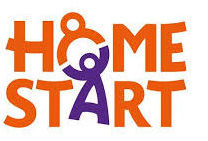Special edition: Spring/Summer 2020
Children and Young People, Grants to charities, Later life inclusion, Partnerships
Media
But for vulnerable people and families, social distancing has led to new challenges which make life even harder. Lonely older people now have even less contact with others, and disadvantaged families are struggling to provide extra meals and home-schooling.
Two of the charities that the MCF is working in partnership with, Age UK and Home-Start, have provided some guidance and information to continue supporting older people and families with young children.

With more than 8.5 million older people already feeling lonely or isolated, social distancing can exacerbate existing difficulties and make tackling loneliness that bit harder.
Thankfully, Age UK exists to help older people when they need it most – whatever the global climate. Their dedicated webpage includes information on coronavirus; top tips to stay safe and well at home; and five ways people can support older people during this crisis.
We’ve pulled out a few key pieces of advice to help you through:
Age UK recommends you make a list of the things you need day to day, including food, medicine, and household essentials to help you keep track and ensure you always have these at home. Don’t forget to include any items you need to continue hobbies or interests at home – these are also important! If you have food or medicine delivered to your home, it may take longer than expected so by planning ahead you can avoid running low. If you’re worried about running out of medication, speak to your pharmacist.
Don’t be afraid to call on your neighbours or family members to help you with food shopping or collecting medicine. Even if you don’t know your neighbours very well, community spirit is high and those who are less vulnerable are coming together to support those who need it most. If you live rurally, or don’t feel comfortable asking neighbours for help, get in touch with your local Age UK branch for advice on how to access support.
Whilst the majority of people are genuine, there may be some who try and take advantage of this situation for their own gains. To protect yourself against telephone or door-to-door scams, feel confident to follow the following advice:
Our £1 million three-year partnership with Age UK is funding their ‘Later Life Goals’ project, helping 10,000 older people become more socially connected. So far, the project has supported over 4,000 people and 57 per cent of people who often felt lonely, reported feeling less lonely thanks to the support they received.
To access Age UK’s full range of support and advice on staying safe, happy and healthy during coronavirus, visit their website.

Home-Start is dedicated to supporting families with young children through challenging times. With the current situation affecting the financial stability and mental health of many families, Home-Start’s work has never been more critical. In response to the government’s closure of schools and nurseries, Home-Start has pulled together online tools to help support families through social distancing, including fun and educational activities; how to keep up routines; and best ways to communicate with children about the coronavirus.
Here is an overview of the information they have provided:
Having a routine can be a comforting way for families to develop a new sense of ‘normal’. Home-Start has put together a free, downloadable PDF planner to help structure days and provides suggestions as to what to include such as meals, activities and bedtime routines. Remember, schedules are just a guide and it’s okay if they aren’t stuck to every day!
Home-Start has gathered together their favourite practical activities and resources for families to do at home. From educational activities to help with home-schooling; to free wildlife watching activity sheets, not all of which require a garden; to problem-solving puzzles – visit their online resources page for inspiration.
An NHS nurse has written a short story to help reduce children’s fear about the coronavirus. The story explains Dave the Dog’s worries about coronavirus, and describes his anxieties on what he hears from friends and the news. Home-Start has provided a link to the free book online, so you can help ease any of your children’s worries with this light-hearted story book. If your child or grandchild is a little old for this story, try the following tips when talking to them about the coronavirus:
Our £1 million partnership with Home-Start involves a project which will run over 5 years and works with local Home-Start branches to deliver a project, aiming to get children from disadvantaged backgrounds school-ready.
To access Home-Start’s advice on how to keep your family active, safe and connected during the coronavirus, visit their website.
as well as our commitment to tackling social isolation in later life and opportunities in early years